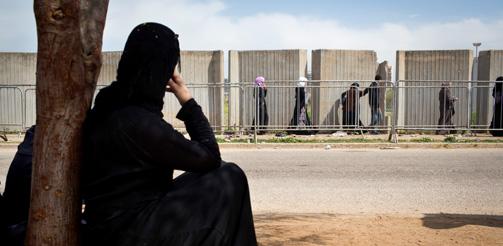Today is World Mental Health Day, an occasion to raise awareness and mobilise efforts in support of mental health issues around the world. Historically, psychological problems among refugees were seen by humanitarians and medical professionals as resulting from exposure to traumatic events in war. But a growing number of studies point to the contribution of post-migration stressors such as impoverishment, social isolation, and family violence eroding people’s coping abilities and taxing their mental health and wellbeing.

Amongst an estimated 23 million refugees globally, a majority and growing number now live in urban areas. Cities and towns thus become important contexts within which post-migration stressors emerge and take shape. In the case of the Syrian refugee crisis, over eighty-five per cent of refugees have settled in and around urban centres in Syria’s neighbouring states. Jordan and Lebanon host an estimated three quarters of a million, and one million Syrians, respectively, carrying a disproportionately heavy burden. To compare, the UK has grudgingly accepted 20,000 Syrians, not immediately, but by 2020.
Urban local authorities such as municipalities, as well as national host governments, have important roles in structurally shaping post-migration stressors. Their public policies, laws and bureaucratic practices govern not only refugee flows, border crossings and identity verification, but also many aspects of their daily life following arrival: from housing, to work, to access to education and health services, etc. However, a wider range of non-state actors, from humanitarian agencies, to private landlords, and faith-based and political movements are also deeply involved in providing locally specific ‘modalities of reception’. For instance, Hezbollah in Lebanon is not only known for its military and political clout, but also runs effective social welfare provisions in areas under its aegis.
A current study uses a wellbeing lens to analyse the effects of modalities of reception on refugees and host communities in urban Lebanon and Jordan. Several interim findings are emerging:
National policy measures – including those on residency, work and urban public services – have important knock-on effects for refugees and host communities
Various aspects of wellbeing are closely intertwined, and national policies and laws can have often unrecognized knock-on effects that impact on people’s mental health and wellbeing. For instance, residence permits are required for any foreigner, refugee or not, to work in Jordan and Lebanon. Until earlier this year, when a fee waiver policy was put in place, most Syrians in Lebanon had to pay annual renewal fees set at $200 per person over 15 years of age within a household. These fees were so crippling that by 2016 60 per cent of registered refugees could no longer afford these. Not having legal residence status made people fearful of and subject to arrest, detention, and at worst deportation. Its chilling effects included people stopping from venturing outside, fearing checkpoints, and taking children out of school to work, deeming them less likely to be stopped.
Moreover, access to work permits is severely restricted for most but impossible to obtain without a residence permit. As only a tiny proportion of Syrian refugees in both countries hold work permits, the great majority relies on informal work for survival. Informal work may involve exploitation by employers and low, erratic wages, limited autonomy and no social security. The precariousness and lack of work leads to intense vulnerability and feelings of powerlessness, especially for Syrian men, whose traditional role as providers within families is undermined. Concerns are increasing over Syrian men’s mental health, with more reports of depression and rising suicide rates. Stress may lead to family conflict and domestic violence, while pressures (real or perceived) on the labour market can cause anger and resentment from hosts towards refugees.
Furthermore, many refugees in Jordan and Lebanon live in informal settlements in very poor living conditions, with inadequate hygiene and sanitation, poor isolation to cold and humidity, and lack of privacy due to severe crowding. Housing shortages, rising rent prices, and pressures on urban services and infrastructure are increasingly causing social tensions, alienating Syrian refugees from their host communities. The renowned spirit of ‘Pan-Arab hospitality’, which saw many host families extending support to Syrian refugees at the beginning of the crisis, may be at breaking point, and this is causing anguish amongst host communities, who feel unable to live up to treasured cultural values.
More knowledge is needed on the role of municipalities in shaping wellbeing outcomes
While municipalities are at the forefront of responding to the refugee crisis, they operate with weak (in Lebanon) or emerging (Jordan has just adopted a new decentralisation law) decentralisation mandates and with limited budgets. They are required to innovate by force of sheer necessity. However, it is clear that some responses can have detrimental outcomes. For instance, night time curfews are imposed on (registered) Syrian refugees in a swath of Lebanese towns and cities. Consequently, people cannot access to night time work (key to economic survival) or health services (for instance to deliver a baby in hospital). It also restrains more prosaic but no less important wellbeing and mental health needs. The inability to freely take an evening stroll to escape living in severely overcrowded housing takes away an important pressure valve, while not being able to visit friends increases social isolation. Overall though, it is striking how little evidence exists on the role of municipalities, and how their everyday efforts, or lack of these, shapes wellbeing outcomes for host and refugee communities. This will require further investigation.
A final report from the study will follow in coming months.
Image: Andrew McConnell, Panos
This article was made possible with assistance from Save the Children who provided resources to support the research activities of co-author Emma Soye.